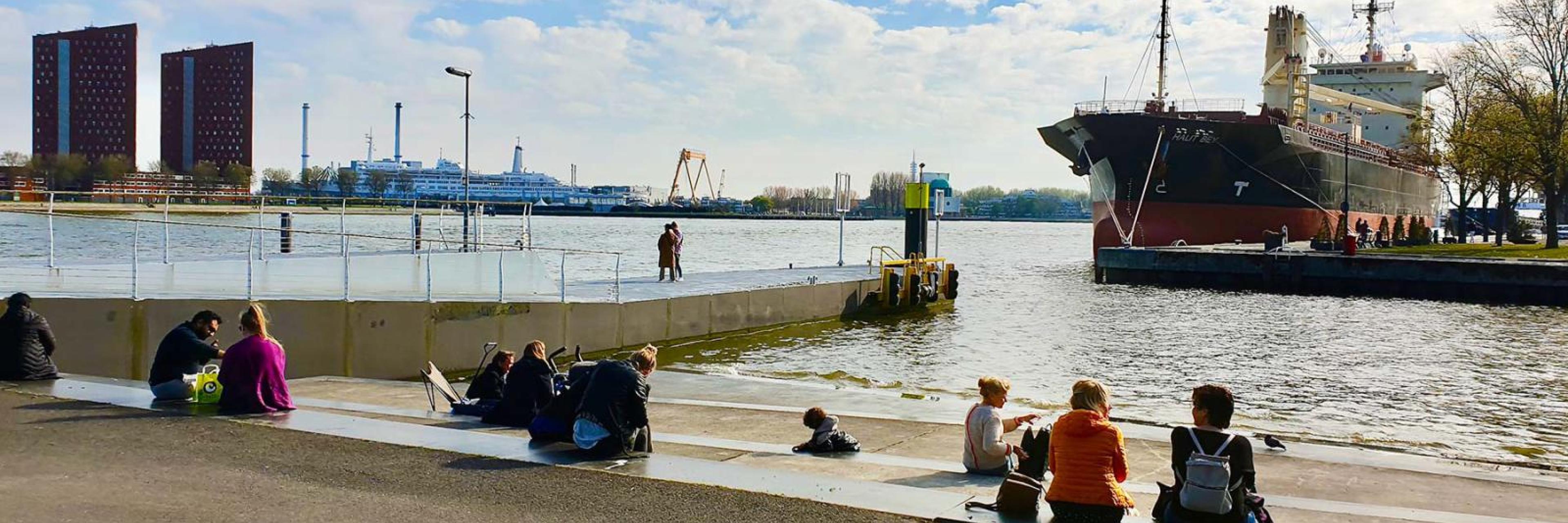
Coordinators & advisors
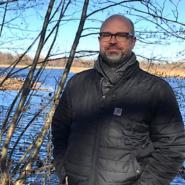
Coordinator of the River Cities Network
read bio →
Paul Rabé is academic coordinator of the cities cluster at the International Institute for Asian Studies (IIAS) in Leiden, the Netherlands, and coordinator of the River Cities Network. In addition, Paul is Lead Expert in Urban Land Governance at the Institute for Housing and Urban Development Studies (IHS) of Erasmus University Rotterdam, where he heads the Land Management team. He is a political scientist by training, with a doctoral degree in policy, planning and development from the University of Southern California’s Sol Price School of Public Policy. Paul has over 25 years of experience in advisory work and capacity building as well as research and teaching on urban policy topics. His research and professional interests focus on urban land governance and the intersection of land (use) policy and the management of water and water bodies in urban and peri-urban areas.

Academic advisor to the River Cities Network
read bio →
Satya Maia Patchineelam is currently a PhD candidate at the Institute for Housing and Urban Development Studies of Erasmus University Rotterdam. Her research is focused on the resettled riverine women from the Brazilian Amazon. Satya is an architect and urban planner by training and has a MSc in Environmental and Sustainable Development at University College London, UK.
She has seven years of work experience in various architectural fields and almost eight years in research. In October 2021, Satya started working for International Institute for Asian Studies of Leiden University as a project assistant for the creation of River Cities Network. Currently she is RCN academic advisor and an International Principal Investigator for the RCN pilot project.
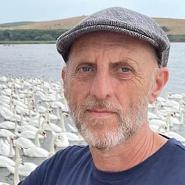
Strategic advisor to the River Cities Network
read bio →
Philip Hayward is an adjunct professor at the University of Technology Sydney (Australia), a strategic advisor to the River Cities Network and is a member of the Environmental Science and Activism group Lab X. He is founding editor of the Blue Humanities journal Shima and has held visiting professor positions at Kansai and Kagoshima universities (Japan), Pattimura University (Indonesia) and at the University of New Orleans (USA). He has researched widely in Australia, East Asia, Melanesia and Western Europe. He has been involved in developing the concept of the aquapelago – an integrated terrestrial and aquatic space generated by human livelihood activities and is currently preparing a book on the topic for Routledge. He has also worked extensively on rainforest regeneration in northern New South Wales (Australia) and is involved in various community initiatives around Sydney’s Lane Cove River.

Coordinator Humanities Across Borders (HAB)
read bio →
Aarti Kawlra is the coordinator of the Humanities Across Borders (HAB) network and program of the International Institute for Asian Studies (IIAS), Leiden University, The Netherlands where she works with colleagues in the global South and North to develop civically grounded, collaborative teaching and research methodologies in higher education. She is interested in using methods of social anthropology, history, geography, cultural studies and feminist studies to interrogate colonial, postcolonial and global discourses of culture, education, heritage, development, and ecological transformation from a people's lived experience perspective. She is the co-editor of the Humanities Across Borders Methodologies Book Series of the Amsterdam University Press. Her publications include the Routledge book chapter "Narrating Indigo" in Chandan Bose and Mira Mohsini edited Ways of Studying Craft (2023) and the monograph We Who Wove with Lotus Thread: Summoning Community in South India, Orient Blackswan, 2018.
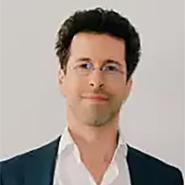
Head of Urban Sustainability & Climate Change Resilience Department, Erasmus University Rotterdam
read bio →
Alberto Gianoli (PhD Policy Studies, University of Bristol; MSc Economics, University of Milano) is an economist and management specialist at the Institute for Housing and Urban Development Studies (IHS) of Erasmus University Rotterdam. His main areas of expertise and interest include urban environment and infrastructure, project and infrastructure finance, climate change adaptation and mitigation, decision making analysis (e.g. cost-benefit and cost-effectiveness analysis, multi-criteria decision making), performance measurement and management, monitoring and evaluation, impact studies, urban and regional management and governance, and urban and regional economic development. At IHS, Dr Gianoli is the Head of the Urban Sustainability and Climate Change Resilience Department, and he is involved with high-profile research and consultancy assignments, and is a project leader for various international projects.

Business developer at Naturalis Biodiversity Center in the Netherlands
read bio →
Caroline van Impelen is business developer at Naturalis Biodiversity Center in the Netherlands, and an advisor to the River Cities Network. Naturalis is the national research institute for biodiversity research with 150 researchers who dedicate themselves to describing, understanding, monitoring and preserving biodiversity. Naturalis houses one of the world’s largest natural history collections and houses a natural history museum with more than 400.000 visitors every year.
Caroline has 15+ years experience as project manager of EU and national funded multi-partner projects. She develops project plans, networks and proposals together with scientists and stakeholders. She advises, guides and supports scientific coordinators and manages multipartner research projects throughout the project lifecycle from development of projects and proposals, implementation, and execution to final reporting, with special attention to citizen engagement, citizen science and outreach. Her professional interests focus on biodiversity and bringing people together to work for the benefit of biodiversity.
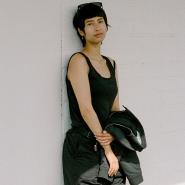
Programme Support Officer, International Institute for Asian Studies
read bio →
Cherelle Jaleesa Karsseboom (M.A.) is a Leiden University graduate particularly interested in art history, visual and material culture. Their research focuses on modes of heritage within that field, including displays of the natural world and its engagement with building identity. They are currently active at the International Institute for Asian Studies as Programme Support Officer.
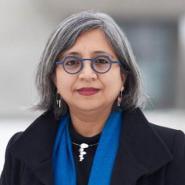
Chair for the History of the Anthropocene at the University of Zürich
read bio →
Debjani Bhattacharyya holds the Chair for the History of the Anthropocene at the University of Zürich. Her work lies at the intersection of legal and environmental history and focuses on analyzing how legal and economic structures order our conceptualization of environmental transformations and shape how we respond to climate crises. She is the author of, Empire and Ecology in the Bengal Delta: The Making of Calcutta (Cambridge University Press, 2018), which won the 2019 honorable mention for the best book in Urban History. Currently Prof. Bhattacharyya is writing a long history of how marine insurance market’s risk apprehensions shaped weather knowledge, colonial oceanographic sciences and a derivatives market in climate futures in the Indian Ocean Region. She is also interested in developing alternatives to climate adaptation strategies of planned retreat along the Bay of Bengal coast. She is a Non-Resident Fellow at the Center for the Advanced Study of India, University of Pennsylvania.
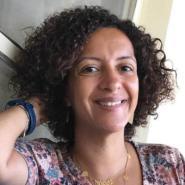
Head of Educational Production at Madrasty for Education
read bio →
Ereeny Yacoub is the Head of Educational Production at Madrasty for Education. She has 16 years experience in the field of Development and Education. Ereeny worked as a Managing Director in Wadi Environmental Science Centre NGO, managing more than 30 employees. In addition to that Ereeny opened her own company in partnership with the Founder of WESC implementing environmental science field trips to school students. The company had also implemented more than 10 projects with international donors and companies such as EU, UNWOMEN, GIZ, EFG Hermes and others. The focus of her work has been on providing experiential learning to students through collaborative hands-on educational methodologies. The centre has also trained school teachers on curriculum mapping and innovative teaching skills. In 2019 Ereeny took an assignment of co-managing a private school in Alexandria (Janaklees) for 6 months, where she put teaching strategies and monitored more than 250 teachers’ performance across all grade levels, from KG to High school.
Ereeny is a graduate of Cairo University, majoring in Economics and minor Political Science, English Section. In 2013 she finished her MSc in Environment and Sustainable Development from University College of London, UCL, in the UK. In 2021 she obtained the PGCEi certificate from the University of Nottingham, UK and then pursued a master’s degree in Education with focus on Leadership in the same university. In addition to doing a 6 months course with the Swedish Embassy on entrepreneurship in Sweden, as well as being a certified Climate Reality Leader from Algore Foundation, course of 2014 South Africa.
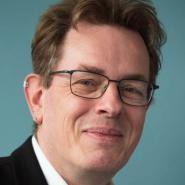
Associate professor water resources management, TU Delft
read bio →
Maurits Ertsen, associate professor water resources management, TU Delft. Sustainable water management, closely associated with success and collapse of human civilizations, has become crucial given current climate variability. In all my work, I focus on the question how short-term interactions between humans and non-humans – especially water and associated agents – create the longer-term patters and processes that we observe or desire. Rather than working on one time period and/or region, my research is based on how this central theme unfolds in different settings. I study states and water in colonial history and archaeology, I work on emerging societal relations and power relations in environmental history and archaeology, and I work on the relation between humans, technologies and environment in current settings. My studies bring me to places like Indonesia, Kenya, Peru, the Ancient Near East and The Netherlands. All my activities are developed in close cooperation with colleagues from universities, NGOs, and the private sector.
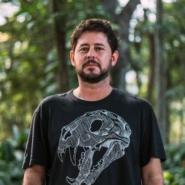
Academic coordinator Geochemistry at Federal Fluminense University, Brazil
read bio →
Nicolás M Strikis is academic coordinator of the post-graduate program of Geochemistry from Federal Fluminense University, Brazil. Nicolas is a young scientist with 7 years of experience in advisory mastering and pH projects in the field of Geochemistry and paleoclimate. His research focuses on isotope Geochemistry and Paleoclimatology with an emphasis on reconstructing past changes in the South American monsoon and understanding the impacts of climate change in precipitation regime over the tropics.
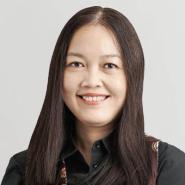
Associate Professor at the College of Interdisciplinary and Experiential Learning, Singapore University of Social Sciences
read bio →
Rita Padawangi is Associate Professor (Sociology) at the College of Interdisciplinary and Experiential Learning, Singapore University of Social Sciences. She received her PhD in sociology from Loyola University Chicago, a Master of Arts in Urban Design from the National University of Singapore, and a Bachelor of Architecture from Universitas Katolik Parahyangan in Bandung. Her research interests are on social movements and participatory urban development. She explores and applies collaborative approaches in research, teaching, and community engagement. She co-coordinates the Southeast Asia Neighborhoods Network (SEANNET), an initiative for urban research and education, funded by the Henry Luce Foundation.
She is the editor of Routledge Handbook of Urbanization in Southeast Asia (2019) and co-editor of Cities by and for the People in Asia (Amsterdam University Press, 2019). She recently published Urban Development in Southeast Asia (Cambridge University Press, 2022) and co-edited River Cities in Asia (Amsterdam University Press, 2022).
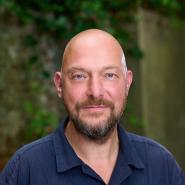
Communication Advisor & Web Manager at IIAS
read bio →
Thomas Voorter studied Slavic Linguistics at the University of Amsterdam, where he became interested in modes of knowledge production and transmission other than text alone. He shifted his focus to social and historical anthropology; and conducted fieldwork in Kyrgyzstan, where he studied forms of oral history and traditions. It was at the time when societies had started to become permeated with internet technology and desktop publishing was becoming democratised. Influenced by the groundbreaking book Word, Sound and Image: The life of the Tamil Text and the lectures of Dr Saskia Kersenboom, he started to explore ways in producing an interactive and multimedia driven ethnography. He acquired the technical skills to deliver his Master thesis "Kyrgyz Heroes: Songs of Sanzhyra and Tales of Batyrlar" on CD-ROM. Since then, his fascination for interactive and digital technologies has never ceased. In 2005, after working in the ICT industry for a couple of years, he started work at the International Institute for Asian Studies (IIAS) as Communication Advisor and Web Manager.